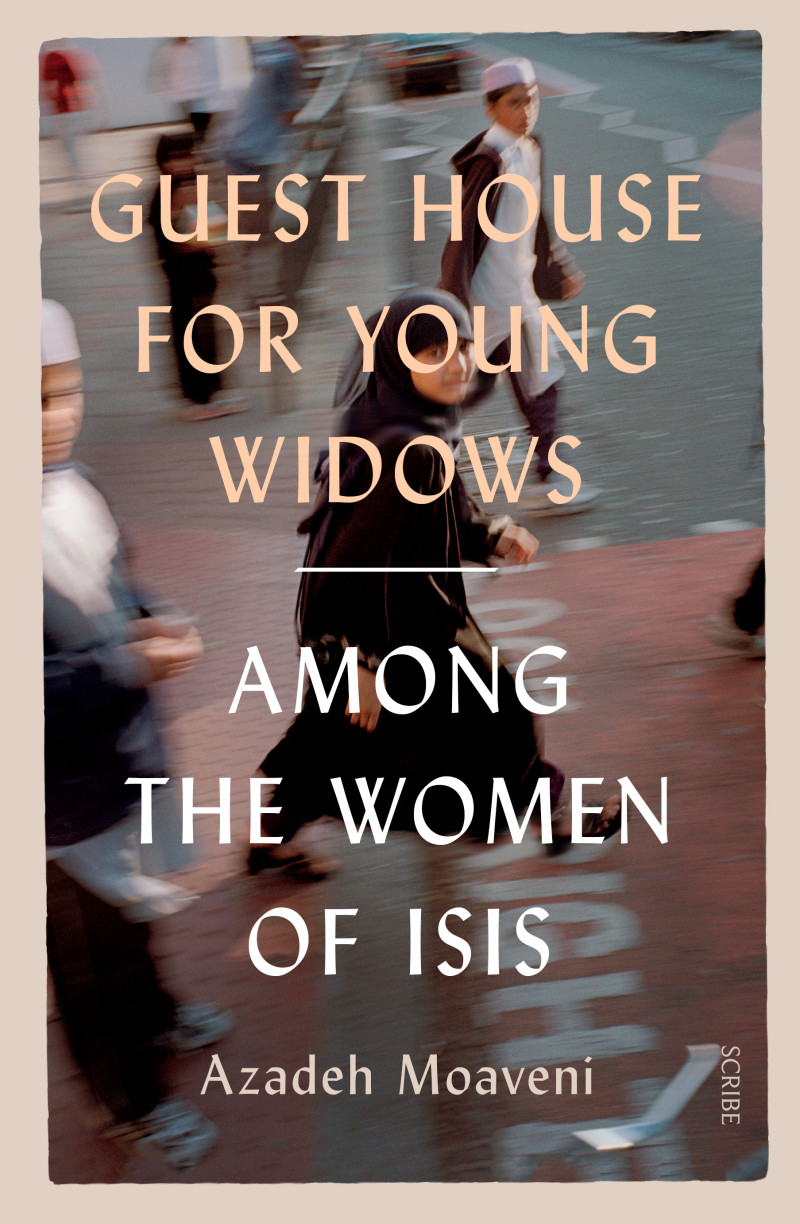lip lit: guest house for young widows: among the women of ISIS

Guest House for Young Widows (Scribe Publications, RRP $32.99)
Journalist-cum-author Azadeh Moaveni commands a wealth of knowledge when it comes to Middle Eastern politics and ideology, and it shines in her latest offering, Guest House for Young Widows: Among the Women of ISIS. This narrative non-fiction is written as a pastiche of sorts, vividly painting a picture of the journeys many Muslim women followed during their interactions with ISIS. From British teenage girls sneaking their way to the Middle East, and young women already living in afflicted areas; to mothers, wives and sisters worrying about their loved ones leaving to join the Islamic State, Guest House weaves the experiences of many women into a cohesive and engaging story.
The book is the culmination of countless conversations between Moaveni and the women depicted in Guest House. While Moaveni ‘tried to write most closely from the perspective of the women’ that she interviewed, she has artfully juxtaposed these personal stories with the political reality that confronts Muslims to this day. In fact, it is evident in Guest House that the personal is political, just as the political becomes personal. This is not to say that the book provides justification for the radicalisation the followers of ISIS: Moaveni’s intention for the book is that ‘judgment remains the prerogative of the reader.’ Guest House is not necessarily aimed at Muslim readers, as it traces its way through the rise and fall of ISIS. People with just a cursory knowledge of the conflicts in Syria and Iraq will find that Guest House is a pleasure to read.
That is not to say that Guest House is an easy read. Rather, Moaveni’s immersive, personal writing makes digesting the information in the book much less demanding than what it could be, especially given the heavy content and themes within its pages. One of the biggest strengths of the book is the fact that it does not shy away from the violence and sexual abuse rife within the ISIS community. Nor does it dwell on it. Contentious topics are confronted with compassion and tact. This makes some of the more chilling aspects of the book even more jarring to read.
One key example of this is found towards the end of the book. After having followed so many harrowing tales of women enduring, and even dying from, the horrors of living under ISIS, it is grating to find that not all would denounce their actions. But it is not unreasonable. After all, Guest House painstakingly outlines many of the motivations that drove these women to ISIS – a prime one being that, given the violence and subjugation Muslims have experienced at the hand of the West, why wouldn’t ISIS use similar means to fight back against “unbelievers?” It’s these kinds of juxtapositions within Guest House that foregrounds the myriad ways that these women experience and process trauma, and how that influences the way they approach human connection and empathy. It also raises the question that, if put in the same position, would we also react in a similar manner?
It should be said that Guest House is not meant for people who like their stories to have closure. Yes, there is a conclusion to the book – but not necessarily for the women depicted in its pages. It is a frustrating feeling, finishing a book and not knowing how each of the characters will fare in the end.
That being said, leaving these stories open leaves possibilities open for these women. Perhaps some have recovered, or at least are recovering, from their time living in the Islamic State. Maybe they have found their way home. Although, for anyone who has been paying attention to the news, it’s easy to take an educated guess: there won’t be a resolution anytime soon for these women who were seduced by ISIS’ promises.

